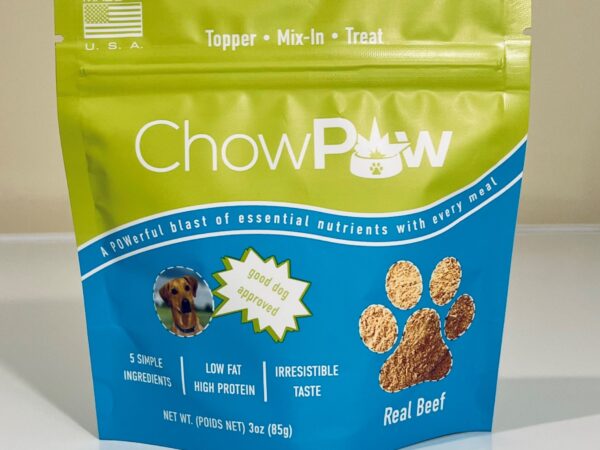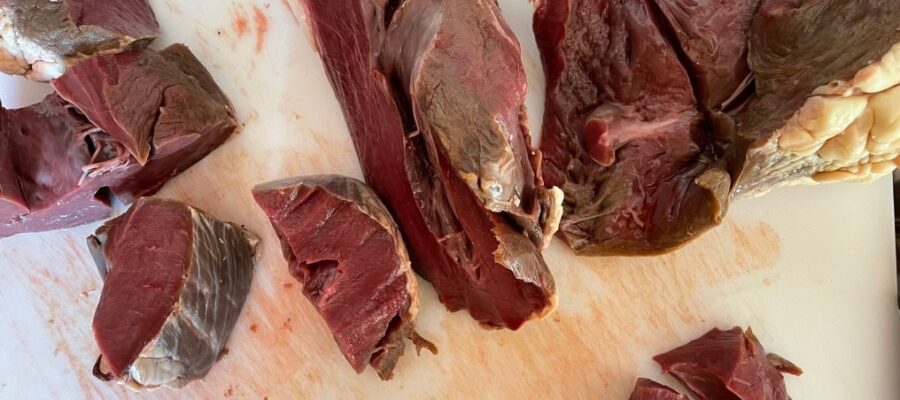
Fiber’s Role: Benefits of Fiber for Canine Digestion
Does your dog experience occasional tummy troubles? Has their poop consistency been less-than-ideal? While fiber might not be the first thing you think of for dog nutrition, it plays a surprisingly crucial role in their digestive health and overall well-being. In this blog, we’ll unpack why fiber matters, the different types, where to find the best sources, and the signs your dog might benefit from a fiber boost.
What is Fiber, and Why Is Fiber Good For Dogs?
Let’s start with the basics. Fiber is the indigestible part of plant-based foods. Unlike carbs and proteins, it passes through your dog’s system relatively unchanged. But don’t let that fool you; fiber serves several vital functions:
- Regulates Digestion: Fiber helps normalize both diarrhea and constipation by influencing stool bulk and water content.
- Promotes Gut Health: Certain fibers act as prebiotics, feeding the beneficial bacteria in your dog’s gut microbiome.
- Weight Management: Fiber makes your dog feel full on fewer calories, aiding in weight loss or healthy weight maintenance.
- May Support Blood Sugar Control: Soluble fiber can slow sugar absorption, potentially beneficial for dogs with diabetes (consult your vet).
Types of Fiber
Not all fiber is created equal. Here’s a breakdown of the main categories:
- Soluble Fiber: Dissolves in water, forming a gel-like substance. This type slows digestion, aids nutrient absorption, and can be helpful for diarrhea. Sources include oats, sweet potatoes, apples, pumpkin, and carrots.
- Insoluble Fiber: Doesn’t dissolve in water. This type adds bulk to stool, speeds up movement through the digestive system, and is helpful for constipation. Sources include wheat bran, leafy greens, and vegetable skins.
Most dogs need a balanced blend of both soluble and insoluble fiber.
How Much Fiber Does My Dog Need?
The ideal amount varies based on size, health status, and the specific food they eat. Most commercial dog foods include adequate fiber. However, some dogs may benefit from additional supplementation. Always consult your vet before significantly altering your dog’s fiber intake.
Signs Your Dog Might Need More Fiber
- Chronic Constipation: If your dog strains to poop or has hard, infrequent stools, more fiber could help.
- Diarrhea: While it may seem counterintuitive, fiber can sometimes normalize loose stools caused by digestive upset.
- Weight Issues: Overweight dogs may benefit from the added fullness that fiber provides.
- Anal Gland Problems: Fiber helps produce firm stools, which naturally express the anal glands, potentially reducing issues.
Best Sources of Fiber for Dogs
- Pumpkin: A canine fiber superstar! Plain canned pumpkin is a tasty source of both soluble and insoluble fiber. Giving my dog pumpkin is a huge help for me and my dog when suffering from diarrhea.
- Sweet Potato: This cooked veggie offers a good mix of fiber types, plus vitamins and antioxidants.
- Green Beans: A low-calorie, high-fiber snack for dogs, cooked or raw.
- Apples (without seeds): Provide soluble fiber and a dose of vitamin C.
- Dog Food Supplements: Offer a controlled way to boost fiber intake. Look for options with natural sources like pumpkin or psyllium husk.
Important Note: Introduce new fiber sources gradually to avoid gas or digestive upset.
Check Our Resources
- University of Illinois: Fiber and Its Benefits to Your Dog
- American Kennel Club: Best High Fiber Dog Foods
Conclusion
Fiber is often the unsung hero of dog nutrition. By understanding its benefits, choosing the right sources, and tailoring the amount to your dog’s individual needs, you’ll be supporting their digestive health and overall well-being from the inside out.






